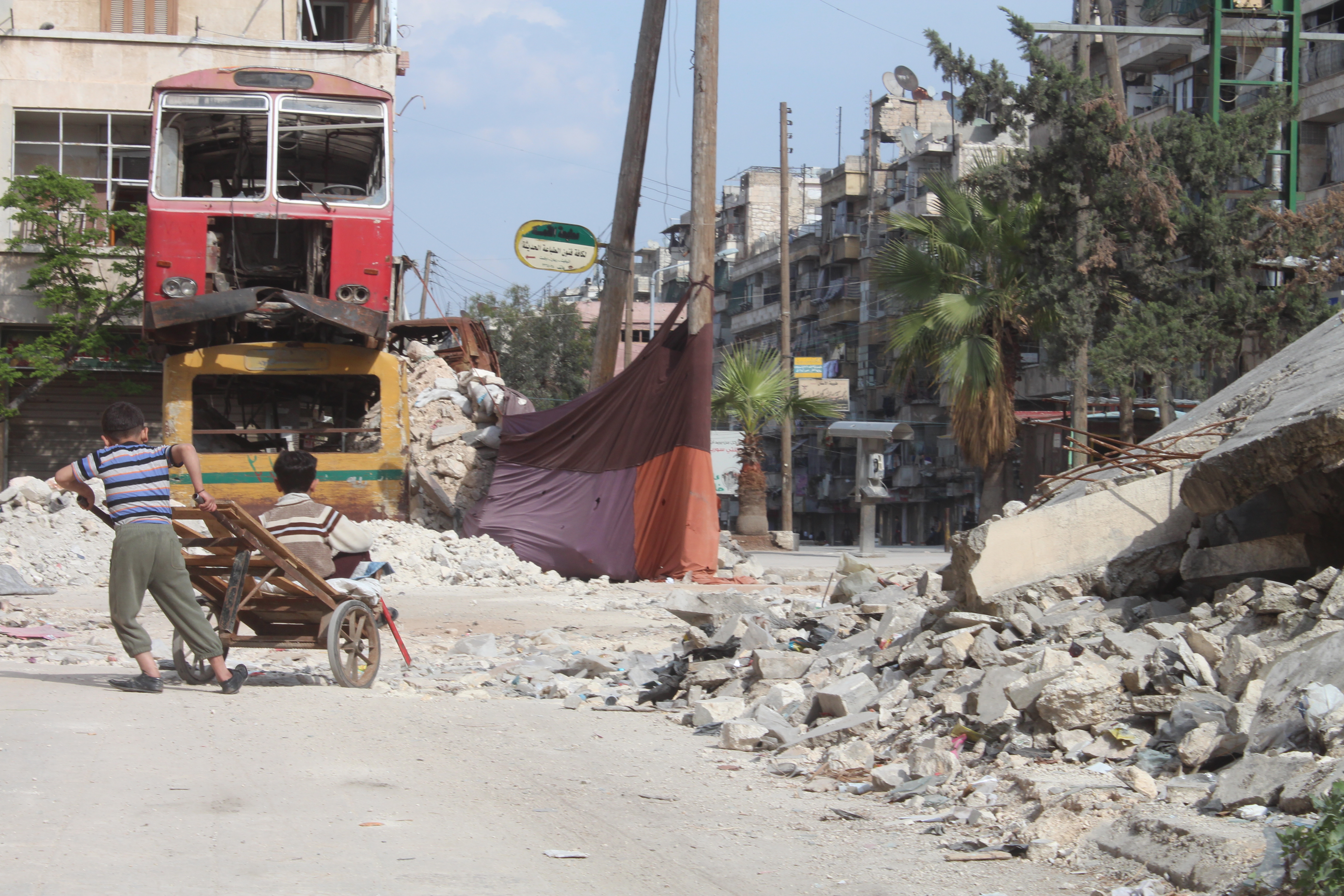The Liberated Women of Idlib

The significant role Idlib’s most devout women played serving the Syrian revolution is one I will never forget.
These veiled women were fondly known as Hara’iruna [our liberated women], and they did everything in their power to support the opposition during its fight to liberate the city.
In early 2012, the government tightened security around its few remaining strongholds in Idlib. Numerous checkpoints were set up in areas where security and intelligence buildings were located.
Those who wished to enter the vicinity were questioned and searched thoroughly, but this did not deter our liberated women.

They took on the role of couriers, delivering satellite phones, money and clothing to opposition members. They also cooked and delivered food to the men who were far away from home. Some of them argued this was the most important of their tasks, for the men had been deprived of their mothers’ cooking.
Each day, the women would gather at a different house to cook the food. The mood was always celebratory. They would begin by reciting verses from the Koran, praying for the safety of the fighters. Then they would sit around a table and prepare the food, while singing traditional and revolutionary songs or reciting poetry.
I attended one such gathering on February 28, 2012. Around 15 young women met at Umm Ghayth’s house to cook stuffed vine leaves.
Each was given a different task. Some women prepared the stuffing, while others washed the vegetables or boiled the leaves. Umm Bayan supervised the work, and Umm Rand collected the stuffed leaves to bundle them together.
The overall mood was so joyful. I felt as if we were preparing food for a wedding feast.
The most difficult of our tasks began when the food was ready. We now needed to deliver it to the fighters, who were stationed in the wilderness or in remote farmhouses.
The women who owned cars led these missions. They always took a companion with them to help them talk their way through checkpoints.
When Idlib fell under government control in March 2012, these women’s mission became even more difficult and dangerous. Crossing checkpoints safely was next to a miracle. Nevertheless, most of them refused to leave the city or stop their work.
Umm Abdul Rahman and Umm Abdalla were two such characters. They drove from one area to another distributing food, clothing and money to families of martyrs and detainees.
The children knew them well and would await their visits. Whenever they saw Umm Abdul Rahman’s car pulling into their neighbourhood, they would run over to greet them, hoping they would be bringing toys, sweets or crayons.
The children’s mothers would welcome them warmly into their homes, cheerfully accepting what they had brought and giving them lists of what they needed. The women would promise to do their best to bring them everything they needed the next time.
On March 24, 2015, Jaish al-Fatah [a coalition of rebel and Islamic factions] liberated Idlib. The government retaliated by shelling the city with all its might, forcing most civilians to flee to the countryside.
Umm Abdul Rahman’s house was hit. She and her family all survived, but were forced to move to a neighbouring village. She hopes to return soon and resume helping the children and widows.
Umm Abdalla’s only son was martyred. Her husband was detained. Unable to tolerate the harsh conditions, she decided to emigrate along with her daughters.
She hopes that by doing this she has granted them the opportunity of a brighter future, where they can complete their studies and carry on with their lives.
Bahja Muallem is the pseudonym of a Damascus Bureau contributor from Idlib. The 22-year-old was arrested filming and participating in anti-government protests. Bahja was forced to abandon her political science studies and seek refuge in Turkey along with her family.
Read the Arabic version of this article here
